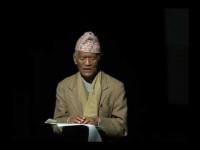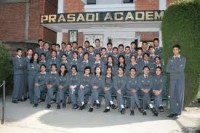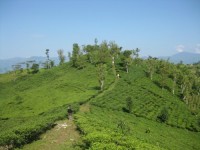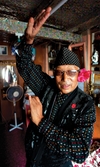Bal Krishna Sama, the great Nepali dramatist
Bal Krishna Sama was born as the second son to General Samer Shumshere Jung Bahadur Rana and Kirti Rajya Laxmi in 1902 in Gyaneshwor. As the son of a Rana – the then ruling regime in Nepal at the time, Bal Krishna Sama was able to receive the best education available in the country.
Bal Krishna Sama completed his high school from Durbar High School in Rani Pokhari and later studied Science in Tri Chandra Campus. During his second year of academic studies, he was sent to Dehradoon for army training as an army captain. Later, he became a Lieutenant Colonel. He got married to Mandakini in 1921.
During his time, the Nepalese people were having a harsh time. They had to abide with the rules and regulations of an autocratic Rana government. Bal Krishna Sama was not happy about leaving his studies mid-way and was less happy about the political situation of the country.
In his own home, the environment was strained. His grandfather Dambar S.J.B Rana used to beat the servants violently. His father was more concerned about leading a luxurious lifestyle. Only his grandmother and mother showed compassion and kindness to the poor and needy. Bal Krishna Sama spent his time in solitude and that is how he generated interest in literature.
He started publishing his writings in reputed magazines such as Sarada, Udhyog and Shahitya Shrot. He also shortened his surname to ‘Sama’ because he no longer wished to be associated with an autocratic ruling regime.
Bal Krishna Sama is known as one of Nepal’s greatest dramatists. He is considered as the Shakespeare of Nepal. In fact, several of his plays have been inspired by Shakespeare’s works. His plays such as ‘Prem Pinda’, ‘Buhartan’, ‘Tapobhumi’, ‘Atyadhunikta’, and ‘Bhater’ present the social context of the Rana era; ‘Mukunda Indira’ and ‘Mutuko Byatha’ show the emotional and romantic side of his personality. ‘Amit Basana’, ‘Boksi’, ‘Talamathi’, and ‘Andhabeg’ are based on the human psychology. Likewise, his dramas on historical personalities are ‘Amar Singh’, ‘Bhimsen Ko Antya’, and ‘Bhakta Bhanubhakta’. ‘Birami Ra Kuruwa’ deals with philosophy while ‘Prahlad’ and ‘Dhruba’ are based on religious figures.
Sama also wrote stories, poems, essays, compositions, and biographies. ‘Aago Ra Paani’ and ‘Chiso Chulho’ are his popular epics. He wrote an essay on Nepalese art entitled ‘Nepal Lalit Kala’. He has also written an autobiography titled ‘Mero Kabita Ko Aradhana’. They are available in two parts: Part I and Part II. ‘Kaikai’ is his most well-known short story collection.
He also became the chairman of the Neal Bhasa Prakashani Samiti (Committee for the publication of Nepali language) for several years. He was a lecturer of Nepali language and literature in Tri Chandra College. In 1955, he became director of Radio Nepal and chief editor of Gorkhapatra, the Nepali newspaper that circulated then. In 1967, when the Royal Nepal Academy formed, he became a member and then the vice chancellor of the academy. He retired from work in 1971.
After his retirement, Sama continued writing and publishing. No doubt Sama’s contribution to Nepalese drama is immense.
Sama was awarded with the Tribhuwan Puraskar from Nepal Rajakiya Pragya Prathistan in 1972. The same year he received the Bishesh Upadhi from Tribhuvan University. In 1978, he received the Prithvi Pragya Puraskar from Pragya Pratisthan.
He died in 1981 of heart cancer. Nepal lost not only a great literary figure, but also a compassionate human being.






